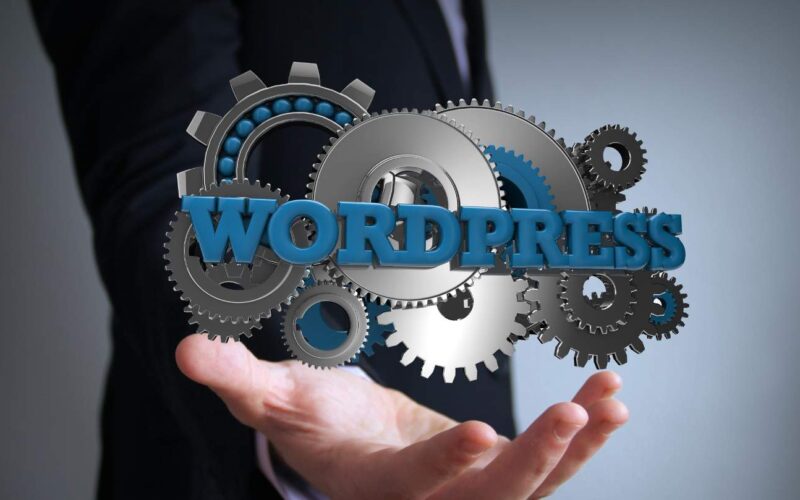WordPress Hosting
When you’re setting up a website, choosing the right hosting is one of the most critical decisions you’ll make. WordPress hosting is a type of web hosting optimized specifically for WordPress sites. This optimization can make your site run faster, more securely, and more efficiently.
Types of WordPress Hosting
Shared Hosting
Shared hosting is the most affordable option where your site shares server resources with other websites. It’s perfect for beginners but can be limited in performance and security.
VPS Hosting
VPS (Virtual Private Server) hosting offers more resources and control by partitioning a single server into multiple virtual servers. It’s a middle ground between shared and dedicated hosting.
Dedicated Hosting
Dedicated hosting provides an entire server dedicated to your site. It offers maximum performance, security, and control but comes at a higher cost.
Managed WordPress Hosting
Managed WordPress hosting includes services like automatic updates, backups, and security checks. It’s designed to simplify managing your WordPress site, albeit at a higher price.
Cloud Hosting
Cloud hosting uses a network of servers to host your site, offering scalability and reliability. It’s ideal for sites with fluctuating traffic.
Key Features of WordPress Hosting
Speed and Performance
Optimized servers ensure fast loading times, which is crucial for user experience and SEO.
Security Measures
Enhanced security features protect your site from malware, hacks, and other threats.
Customer Support
Access to knowledgeable support can be a lifesaver when you run into issues.
Scalability
The ability to scale resources ensures your site can handle traffic spikes.
Backup and Restore Options
Regular backups protect your data and make recovery easy in case of an issue.
Shared WordPress Hosting
Pros and Cons
Pros:
- Affordable
- Easy to set up
Cons:
- Limited resources
- Less control over server settings
Best Providers for Shared Hosting
- Bluehost
- HostGator
- SiteGround
VPS WordPress Hosting
Pros and Cons
Pros:
- More resources
- Greater control
Cons:
- Higher cost
- Requires some technical knowledge
Best Providers for VPS Hosting
- InMotion Hosting
- A2 Hosting
- Bluehost
Dedicated WordPress Hosting
Pros and Cons
Pros:
- Maximum performance
- Full control
Cons:
- Expensive
- Requires technical expertise
Best Providers for Dedicated Hosting
- Liquid Web
- Bluehost
- HostGator
Managed WordPress Hosting
Pros and Cons
Pros:
- Hassle-free maintenance
- Enhanced security
Cons:
- More expensive
- Limited control over some features
Best Providers for Managed Hosting
- WP Engine
- Kinsta
- Flywheel
Cloud WordPress Hosting
Pros and Cons
Pros:
- Scalability
- Reliability
Cons:
- Can be complex to set up
- Variable pricing based on usage
Best Providers for Cloud Hosting
- Amazon Web Services (AWS)
- Google Cloud Platform (GCP)
- Cloudways
How to Choose the Right WordPress Hosting
Assessing Your Needs
Consider your site’s traffic, complexity, and any specific requirements.
Budget Considerations
Choose a hosting plan that fits your budget without compromising essential features.
Comparing Features and Benefits
Look at what each hosting provider offers and how it aligns with your needs.
Top WordPress Hosting Providers
Bluehost
Known for its affordability and ease of use, Bluehost is a popular choice for beginners.
SiteGround
SiteGround is praised for its customer support and performance features.
WP Engine
WP Engine specializes in managed WordPress hosting with excellent performance and support.
Kinsta
Kinsta offers premium managed hosting with advanced features and top-notch support.
A2 Hosting
A2 Hosting provides fast and reliable hosting with excellent customer service.
Setting Up Your WordPress Hosting
Choosing a Domain Name
Pick a domain name that reflects your brand and is easy to remember.
Installing WordPress
Most hosts offer one-click WordPress installations, making setup quick and easy.
Configuring Your Settings
Adjust settings for optimal performance, security, and functionality.
Optimizing Your WordPress Site
Speed Optimization Tips
Use caching plugins, optimize images, and choose a lightweight theme.
Security Enhancements
Implement SSL, use security plugins, and keep everything updated.
SEO Best Practices
Use SEO plugins, optimize your content, and ensure your site is mobile-friendly.
Common Issues with WordPress Hosting
Downtime and Uptime Guarantees
Look for hosts with high uptime guarantees to minimize downtime.
Handling Traffic Spikes
Choose a host that can scale resources during high traffic periods.
Dealing with Security Threats
Ensure your host provides robust security measures and support.
Migrating to a New WordPress Host
Preparing for Migration
Backup your site and gather all necessary information from your current host.
Step-by-Step Migration Guide
Follow a detailed guide to ensure a smooth transition to your new host.
Post-Migration Checklist
Verify everything works correctly and update your DNS settings.
Conclusion
Choosing the right WordPress hosting is crucial for your website’s success. By understanding the different types of hosting, key features, and top providers, you can make an informed decision that suits your needs and budget.
FAQs
What is the difference between shared and managed WordPress hosting?
Shared hosting is cheaper but offers fewer resources and control, while managed hosting is more expensive but provides better performance, security, and ease of use.
How much does WordPress hosting typically cost?
Costs vary widely based on the type of hosting and provider, ranging from a few dollars a month for shared hosting to several hundred dollars for dedicated or premium managed hosting.
Can I switch my WordPress hosting provider later?
Yes, you can migrate your site to a new hosting provider if you’re not satisfied with your current one.
What security features should I look for in WordPress hosting?
Look for features like SSL certificates, regular backups, malware scanning, and a robust firewall.
How important is customer support in WordPress hosting?
Customer support is vital, especially if you’re not technically inclined. Good support can help resolve issues quickly and efficiently.
See Also: Cost-Effective Hosting Solutions: Unlocking Efficiency and Savings










